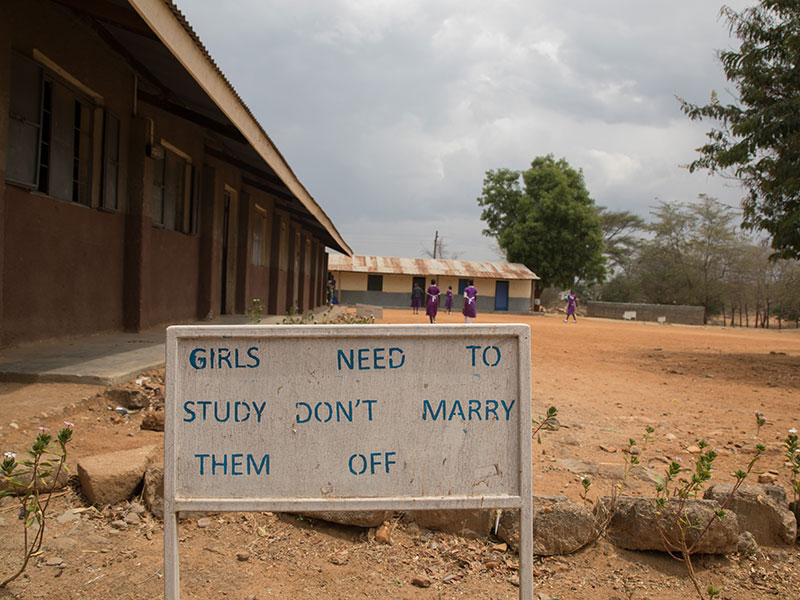Tulane study predicts rise in global child marriage due to COVID-19

Effective programming measures, applied at scale, could delay the age at first marriage and lower the risk of marrying in childhood. Such measures could reduce the additional number of child brides by half, bringing the total impact of COVID-19 down to 5 million additional child brides. (Photo © UNICEF/UN0421359/Abdul)
The economic loss due to COVID-19 has been felt throughout the globe, and often those losses lead to more indirect, less visible impacts. Early in the pandemic, several faculty from Tulane School of Public Health and Tropical Medicine partnered with UNICEF to project how COVID-related disruptions might impact the global rate of child marriages. Their research, outlined in a new publication, demonstrates how the pandemic has put an additional 10 million girls in danger of becoming child brides over the next decade.
The research team consisted of Dr. David Hotchkiss and Dr. Anastasia Gage, both professors in the Department of Global Community Health and Behavioral Sciences GCHB, and Dr. Josh Yukich (MPH IHL ’05), assistant professor of tropical medicine, along with independent consultant Dr. Deepali Godha (HSM PhD ’11), GCHB post-doctoral fellow Dr. Matt Worges (TRMD PhD ’20), and doctoral candidate Annie Preaux (MPH IHL ’17). They began their work by completing a literature review, in particular looking at how other crises have impacted child marriage rates. They used the information they gleaned to inform their approach in making projections about the current crisis.
“We got tasked with not just looking at, in theory, what might happen in terms of the COVID pandemic, but also trying to make those kinds of theoretical risks tied to a kind of empirical reality and making projections of what might happen in terms of excess child marriages and risks,” says Yukich, who is an epidemiologist and a health economist.
Based on the information they had gathered, Yukich developed software that enabled them to make demographic projections about how the pandemic is expected to impact child marriage.
Child marriage is often a way that families cope with crisis and uncertainty. The research identified five factors exacerbated by COVID-19 that can lead to marriage before the age of 18: Interrupted education, economic shocks, pregnancy, death of a parent, and disruption to programs and services.
Child marriages are anticipated to rise most sharply in the near-term, but the impact of the pandemic will continue over the next decade. It can take multiple years to arrange a marriage, giving policymakers and public officials time to mitigate some of the risk to young girls.
UNICEF will use the research findings generated by Tulane researchers to raise awareness and put programming measures in effect. The most effective measures, according to the report, include those that alleviate economic insecurity, such as conditional cash transfers, as well as resumption of education and health and social services aimed at girls.
In addition to the publication, UNICEF has prepared a technical report, and the researchers are working with UNICEF staff on a scientific article that has been submitted to a peer-reviewed journal that will provide more details about how they conducted the modeling and made projections.
